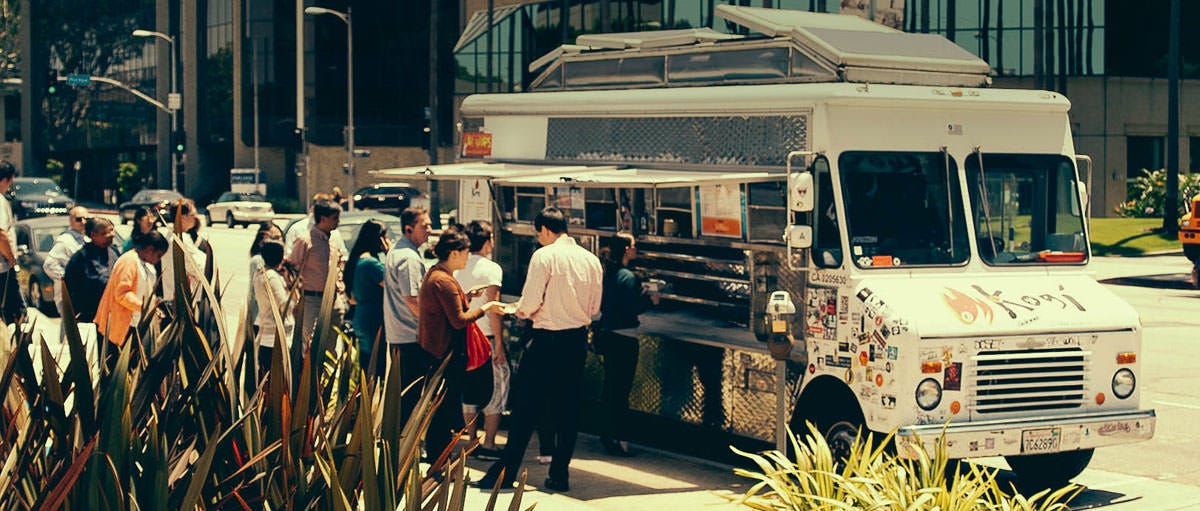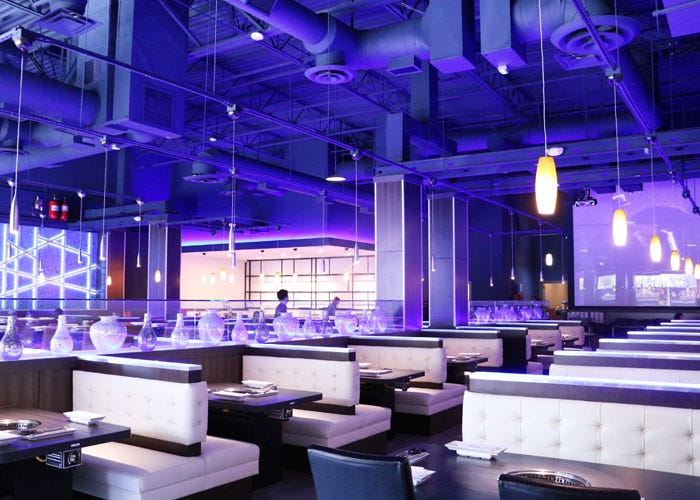Why Are Koreans So Obsessed With Beef
Why is KBBQ so Popular in America?
A new wave of East Asian cuisine has taken America by storm. To the surprise of many, this wave does not originate from China or Japan, but from small South Korea. During the past decade Korean Barbecue went from being something consumed by Korean immigrants and their descendants exclusively to something that can be found and is beloved in nearly all American cities. Many in America are wondering how and why Korean Barbecue became so popular in recent years and many others are also wondering why this aspect of Korean cuisine has become popular in America of all places. A simple answer to these questions is that Americans became comfortable with Korean street food which led to them becoming curious about the other parts of Korean cuisine. From the perspective of an outsider, it might appear that the main reason that Americans love Korean Barbecue solely for the flavors of the food. I believe that Korean Barbecue has become so popular in America in recent years because of the unique experience that the customer has at a Korean Barbecue restaurant. Hardly any other restaurants have their customers cook their own food and also order as much of that food as they like. Having a communal dinner is a rarity in America due to several reasons but it is undeniable that Americans love being able to eat together in a social environment. Before we can understand why Korean Barbecue became so popular in America, we must first understand the history of Korean Barbecue.
The Korean people are descendants of several tribes originating from Central Asia, most notably the Maek. These tribes cooked a hearty meat dish called Maekjeok that helped them survive the harsh climate. (Asian Inspirations). Throughout the centuries Korean cuisine would evolve, resulting in the creation of neobiani, thinly marinated beef that was served to the elite of Korean society. (Food Worth Writing For). While the meat was becoming more refined, there was another development in Korea that would have a profound impact on Korean cuisine. Buddhism had begun to spread across the Peninsula. Following the spread of Buddhism, meat began to fall out of flavor which led to development of smaller dishes, primarily vegetable-based, called Banchan becoming very popular. (Food Worth Writing For). Following the invasion of the Mongols during the 1200s, meat once again became popular. Banchan had become essential to Korean cuisine during the Buddhist period resulting in the barbecued meat and Banchan both having equal standing in Korean cuisine.
To understand why Korean Barbecue is so popular it is important to understand the history Korean Barbecue, but it is also equally important to understand the history of Korean immigration to the United States. During the early 20th century, thousands of Koreans immigrated to the United States in order to find a better life than they could at home. (Boston University). Following the end of World War 2, the Korean Peninsula became divided between the Soviet Union backed North Korea and the United States backed South. War broke out between the North and South in 1950 and thousands of Koreans fled to the United States to avoid the violence. Many Korean immigrants also started families with American soldiers on deployment which made it easier for them to come to the United States and become citizens because they had married American citizens A military dictatorship and high unemployment are the main factors for why there was such a large wave of Korean immigrants heading to the United States during the 1960s-1980s. This wave of Koreans and their descendants are the majority of Koreans that live in the United States today.
Korean cuisine did not have the name recognition that Chinese, Japanese, or Thai cuisine did until very recently. That can largely be attributed to the lack of a dish that appealed to the majority of Americans. (Serious eats). Korean cuisine didn't have orange chicken, sushi, or pad thai. There are a few reasons as to why Korean cuisine began to become more mainstream during the late 20th and early 21st centuries. In the United States, Korean restaurants have a reputation for having a club-like atmosphere and also for staying open later than every other style of restaurant. (Serious Eats). This resulted in young people and people that work night shifts discovering Korean food. At the same time, Korean street food had become very popular in the United States. For example, in Los Angeles an Korean-Mexican taco truck called Kogi BBQ became so popular that it has gained a loyal following. (BBC Travel). The popularity of Korean street food led to many people becoming curious about what else Korean cuisine had to offer. This growing acceptance of Korean food led to Korean restaurants opening up all over the country serving delicious food to people who might never have experienced Korean food before.

The food found in Korean Barbecue was inevitably going to become popular in the United States, it just had to be discovered first. Americans have a deep love for meat and for trying what is exotic. While a dish named bulgogi might sound unappealing to some, seeing that bulgogi is in fact makes them more comfortable eating it because they know that they can find similarly marinated beef in American cuisine. While the flavors of the meat may be exotic, the most foreign aspect of Korean Barbecue is the Banchan. Kimchi (fermented vegetables, most notably cabbage), cheongpomuk (mung bean jelly), and eomuk bokkeum (fried fish-cake), are all dishes that overwhelm the senses and keep bringing people back to try again. (Thrillist).
While the food is amazing, I believe that people primarily eat at Korean Barbecue restaurants for the authentic experience that they offer. At Korean Barbecue restaurants, the customers cook and serve their own food. Each table has a grill in its center where the food is cooked and the customers are given the proper utensils to divide up the meat however they please. There are maybe a handful of other restaurants that I know of where the customer is responsible for the quality of their food. In an age where people are having less communal meals than ever before, cooking and eating dinner with your family and friends in a lively restaurant is an experience that people are appreciating now more than ever before. The vast majority of Korean Barbecue restaurants are all-you-can-eat which makes the experience even more unique and exciting for the consumer. Being able to try new items or just get as much as you want of items you love for a flat price is enticing to many Americans who wish to be adventurous, but are often limited by their finances.
The low frequency of communal dining for Americans is one of the key reasons why Korean Barbecue has become so popular in recent years. In an article titled, The Importance of Eating Together, by Cody C. Delistraty, the author states, "the average American eats on in every five meals in her car, one in four Americans eats at least one fast food meal every single day, and the majority of American families report eating a single meal together less than five days a week." (Delistraty). From this it becomes clear that Americans are lacking both quality meals and a communal dining experience. American culture values productivity over pleasure and this has resulted in Americans spending much less of their time on leisurely activities or just eating compared with other nations. Delistraty states, "the average American works nearly 220 hours more per year than the average Frenchman." (Delistraty). The work-obsessed mentality has resulted in fast food becoming extremely popular, many Americans eating in their cars, and many Americans just eating alone. Korean Barbecue is the very opposite of this. People eating at Korean Barbecue restaurants spend multiple hours cooking, eating food, and conversing with friends and family. The food is significantly slower to cook than the food found at fast-food restaurants and it is also very taboo to eat Korean Barbecue alone. These factors show that one of the reasons Korean Barbecue has become so popular recently is because it represents a rejection towards the eating habits that Americans are accustomed to.

The club-like atmosphere of Korean Barbecue restaurants and Korean restaurants in general is another reason why they have taken off in popularity in recent years. As soon as you walk into a Korean Barbecue restaurant you see large groups of people, loud music playing, TV's showing sporting events, and the occasional strobe light whenever a birthday is being celebrated. The atmosphere of these restaurants is extremely different from traditional restaurants which usually are very quiet and groups are usually isolated from each other. In Korean Barbecue restaurants, nearly all groups of people are visible to each other which makes people feel more open and comfortable than they would normally at a restaurant. This club-like atmosphere makes customers feel that there is always something to celebrate which makes the experience more enjoyable and memorable. It can make parents reminisce about going to clubs in their younger years and it can also get children excited to go to clubs when they get older. However, since it is a restaurant instead of an actual club, there is a sense of control and restraint which ensures that the experience is enjoyable for all.

While many other asian cuisines have lost much of their authenticity over the years, Korean cuisine has just recently become mainstream which means that it has still retained its authenticity. There is no "americanized" Korean food, which is rare amongst minority cultures in America. However, the history of the experience has not been passed down to the Americans that consume the food. They have no idea why Banchan is served alongside the meat or why Korean food is so different from Chinese food despite the countries being so near each other. This loss of knowledge will harm Korean cuisine and will no doubt become "americanized" unless proper action is taken to preserve this knowledge. Korean Barbecue might have only recently become popular in the United States, but its rise in popularity was inevitable. The food is both familiar and exotic, customers can have an intimate experience in a loud and busy location, and customers are given great control over the quality of their meal. I am glad that Korean food has become so popular in recent years, I personally enjoy it more than any other type of food. I only hope that as it continues to rise in popularity, it stays true to itself and not lose what makes it so special.
References:
"The Rise of Korean Cuisine." South Coast Repertory, www.scr.org/get-connected/south-coast-repertorys-stories/south-coast-repertory's-stories/2019/10/18/the-rise-of-korean-cuisine.
P, C. "The History of Korean Barbeque, Banchan, and Dry-Aging." Food Worth Writing For, 8 May 2020, foodworthwritingfor.com/2018/07/24/the-history-of-korean-barbeque-banchan-and-dry-aging/.
"Korean Barbecue — A Delicious History." Asian Inspirations, 15 Apr. 2020, asianinspirations.com.au/food-knowledge/korean-barbecue-a-delicious-history/.
Marx, Sasha. "An Introduction to Korean Barbecue." Serious Eats, Serious Eats, 30 Oct. 2019, www.seriouseats.com/2019/08/guide-to-korean-barbecue-table.html.
"Brief Ancient History of Korean BBQ." Korean BBQ Online, 11 Feb. 2016, koreanbbqonline.com.au/brief-ancient-history-of-korean-bbq/.
"History of Korean Immigration to America, from 1903 to Present." History of Korean Immigration to America, from 1903 to Present | Boston Korean Diaspora Project, sites.bu.edu/koreandiaspora/issues/history-of-korean-immigration-to-america-from-1903-to-present/#:~:text=The%20high%20unemployment%20rate%2C%20political,%2Dday%20Korean%2DAmerican%20community.
Surico, John. "How Korean Cuisine Got Huge in America (And Why It Took So Long)." Serious Eats, Serious Eats, 4 Mar. 2019, www.seriouseats.com/2014/08/how-korean-cuisine-got-huge-in-america.html.
Farley, David. "Travel — The Taco That's Taking the US by Storm." BBC, BBC, 4 Feb. 2015, www.bbc.com/travel/story/20150130-the-taco-thats-taking-the-us-by-storm.
Tobias, Ruth. "Here's What's in All Those Little Dishes at Korean Barbecue." Thrillist, www.thrillist.com/eat/nation/banchan-a-guide-to-korean-side-dishes.
Delistraty, Cody C. "The Importance of Eating Together." The Atlantic, Atlantic Media Company, 18 July 2014, www.theatlantic.com/health/archive/2014/07/the-importance-of-eating-together/374256/.
Mull, Amanda. "How America Lost Dinner." The Atlantic, Atlantic Media Company, 10 Oct. 2019, www.theatlantic.com/health/archive/2019/10/work-its-whats-for-dinner/599770/.
Source: https://medium.com/writ-150-at-usc-fall-2020/why-is-kbbq-so-popular-in-america-a343c6731b9
0 Response to "Why Are Koreans So Obsessed With Beef"
Postar um comentário